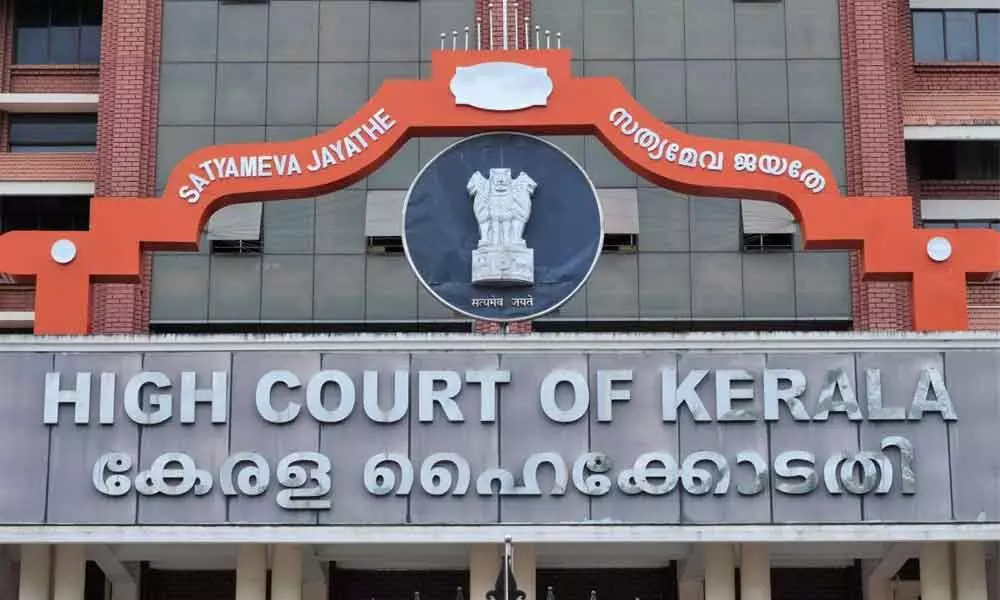Live
- GVMC secures 1st place in best public awareness programme category
- 39 transgenders recruited as Traffic Assistants
- Jesus’ teachings promote unity, compassion: Haryana Governor
- Special drive held on road safety
- Simultaneous elections not imminent: Purandeswari
- Vaktha helping transform individuals as leaders
- Pariksha Pe Charcha 2025
- Cops crack sensational NH-44 robbery
- Train services disrupted over technical glitch at platform 3
- KCR has public support, claim Ponnala, Vinay Bhaskar
Just In

Kerala High Court
The Kerala High Court has pointed out the need for dealing with gender gaps to look into the disadvantages faced by women due to maternity and motherhood.
Kochi: The Kerala High Court has pointed out the need for dealing with gender gaps to look into the disadvantages faced by women due to maternity and motherhood.
The court made these remarks while looking into a petition filed by two women doctors pursuing MD Radio diagnosis, who faced a delay in completing their compulsory senior residency program due to maternity leave.
“Gender equality has to be realistic. Situational analysis is imperative to bridge the gap of gender differences. If situational reality is not responded to, it may lead to denial of opportunity because of biological factors. Men and women are part of procreation but men have the advantage of having no burden of bearing the womb and will be able to march over women in the public appointments and women will have to face disadvantages of carrying the womb as the period of maternity may operate to her disadvantage,” said the High Court.
It further noted that motherhood can lead to complex disadvantages, potentially causing gender gaps.
"Motherhood also produces complex disadvantages. This may result in a gender gap. Non-consideration of disadvantages attributable to motherhood will result in discrimination," the court added.
It, however, rejected viewing motherhood as a burden and advocated for eliminating barriers, enabling women to compete equally with men in public employment regulations.
“Law and regulations need to address such situational reality of women based on maternity while framing rules and regulations related to public employment,” observed the court.
“The reproductive rights of a woman are part of the right to life under Article 21 of the Constitution. Reproductive rights of a woman include the right to become a mother or choose not to become a mother. Motherhood is also integral to the dignity of women,” said the High Court.
The Kerala State Public Service Commission (PSC) had advertised Assistant Professor positions, requiring one year of senior residency experience.
Since these medical professionals took maternity leave, they could complete residency only in January 2024 and not by the November 2023 deadline, but despite making these clear, the two were denied permission and when their petition was first turned down by the Kerala Administrative Tribunal, they approached the High Court.
The court recognised that addressing challenges faced by women due to maternity requires balancing individual rights and the broader interests of public employment within a prioritized time frame.
This exercise is crucial for the state or PSC to undertake, the court opined, saying,
"Non-consideration of such peculiar disadvantages of women, which have got the recognition of fundamental rights, would entail discrimination towards women. In such a situation, constitutional courts will have to interfere".
But the court clarified that the same doesn't require relaxation of necessary qualifications but suggested that the deadline to submit the experience details could be extended for those who had to avail maternity leave in that period.
Finally, the court allowed the petition and proposed that the PSC set a flexible timeframe for producing the required certificate but added that the petitioners would be required to submit their experience certificates within the timeframe specified by the PSC.

© 2024 Hyderabad Media House Limited/The Hans India. All rights reserved. Powered by hocalwire.com






